Choose the country or territory you are in to see local content.
Quality and productivity with Piovan's solutions for post-consumer plastic
Recyling of post-consumer plastics includes various processes involving dedicated equipment from the Piovan recycling products range.
Also, converting of recycled plastic is very different from that of virgin material and therefore requires particular equipment as well.
Post-consumer recycled (PCR) converters in raw materials need solutions that ensure high and consistent production standards.
Producers, using PCR plastic must be able to adapt their plants to allow them to handle a material that is neither standard nor constant in terms of batch quality, as it may come from different sources. As a result, the chemical and physical characteristics may vary greatly as well as the presence of low boiling volatiles (VOC) and other contaminants (NIAS).
Improper use of post-consumer material, such as rPET or flakes, could cause:
The PiovanGroup offers unique solutions for the treatment and production of recycled plastics (PET, PP, HDPE - but not only these), in different forms such as granules or flakes, which guarantee production quality and maximum equipment utilisation.
The offer includes conveying systems, shredders and grinders for the size reduction of the material to be recycled, crystallisers to crystallise materials in the amorphous state and dehumidifiers and hot-air dryers. The PiovanGroup also produces deodorisation systems, solutions for the condensation of low-boiling contaminants and analysis instruments to detect the presence of contaminants in real time. Finally, it develops software to support the quality control system by tracking of production processes and products parameters, storing data for years and interfacing with the company ERP.
The use of Piovan machineries, specific to the treatment of recycled plastic, contributes to an increase in the quality of the final product and at the same time, controls scrap, energy consumption and costs.
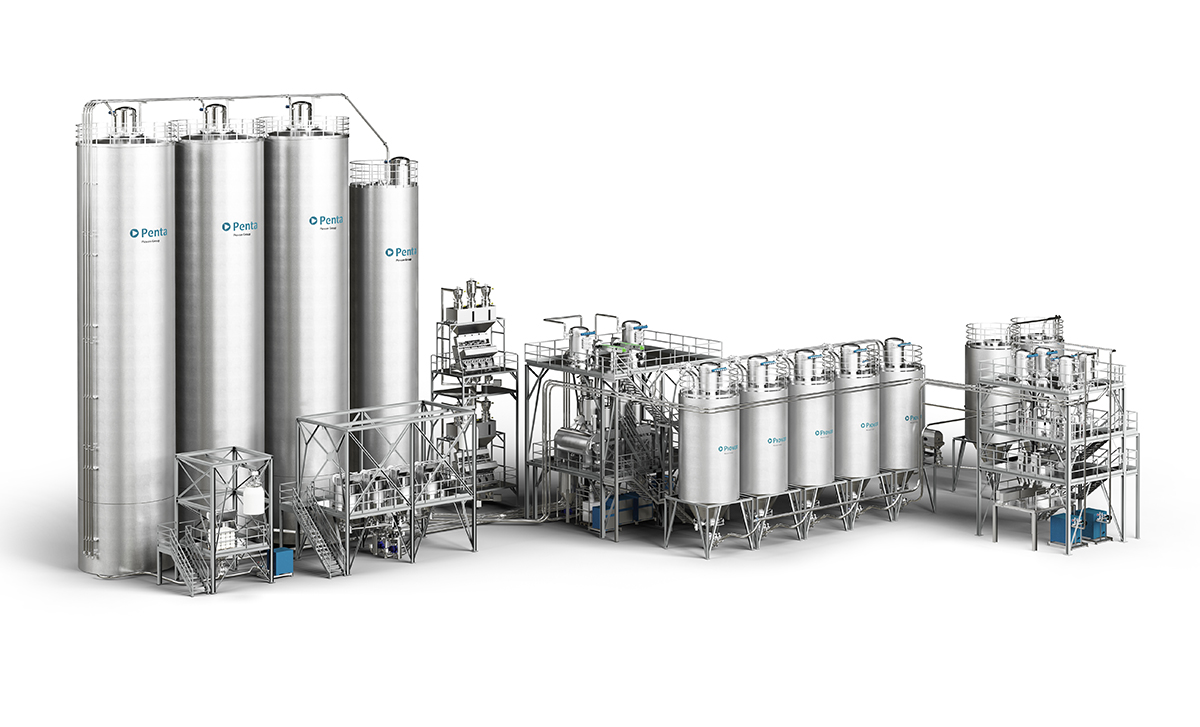
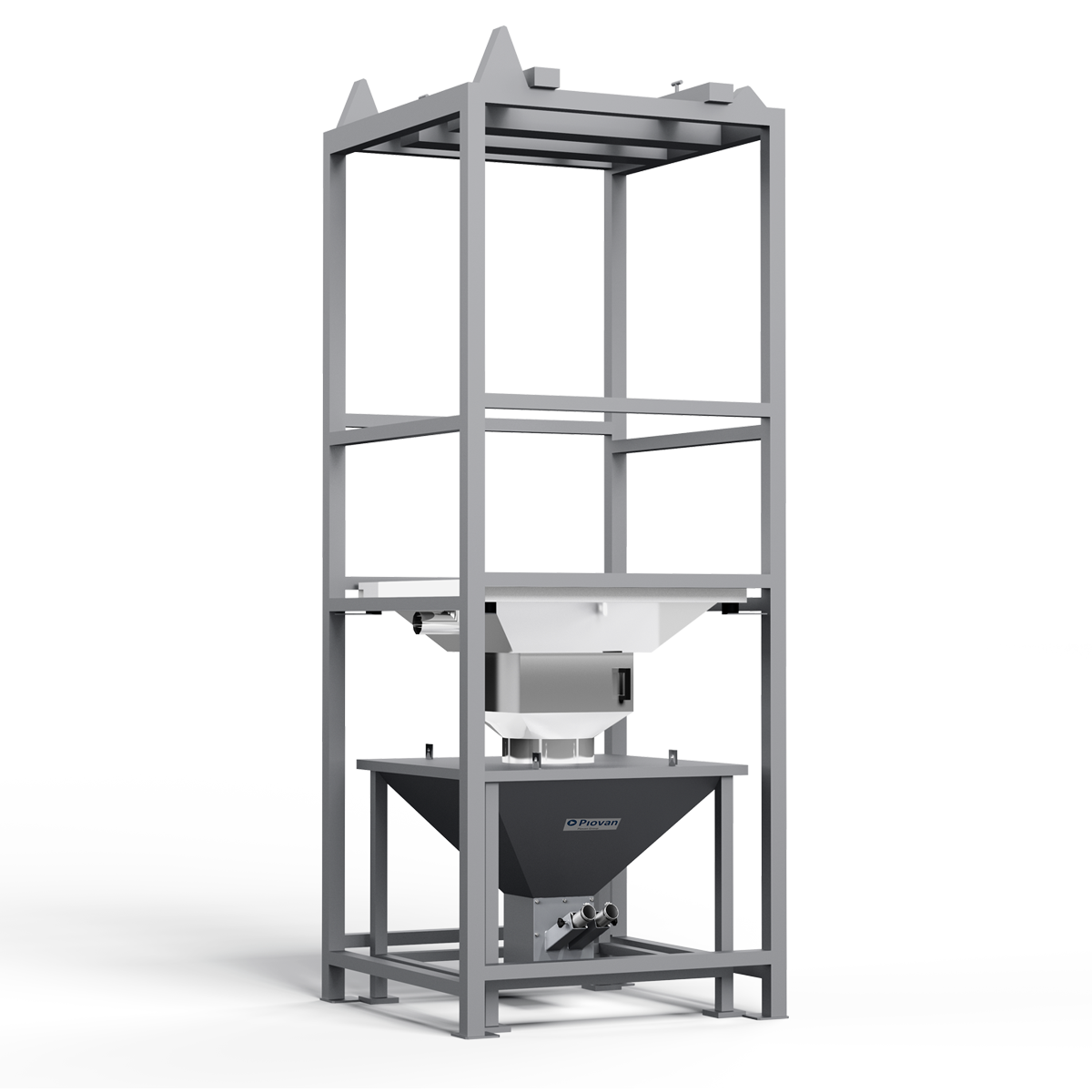
The practical unloading station is suitable for big-bag of granules or flakes, with a capacity up to 2,000 kg. It can be equipped with level sensors on the storage bin, extracting auger or electromechanical vibrators. On request, the collecting bin is available in stainless steel.
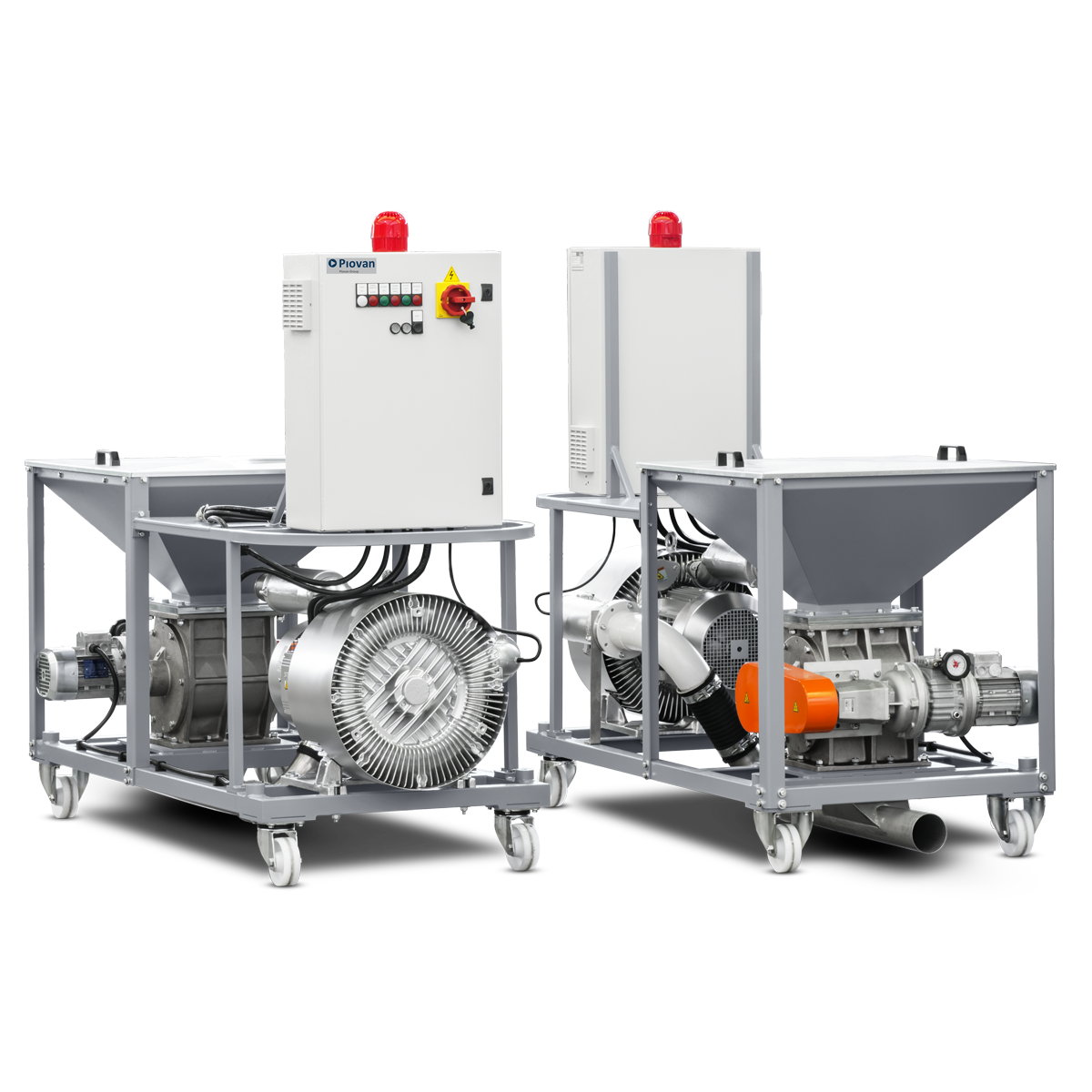
Conveying system for high throughput and long distances, suitable for silos loading. In case of manual filling, a practical grid to avoid lumps of material is available on request. In case of multiple destinations, the management of diverting valves can be integrated in the control.
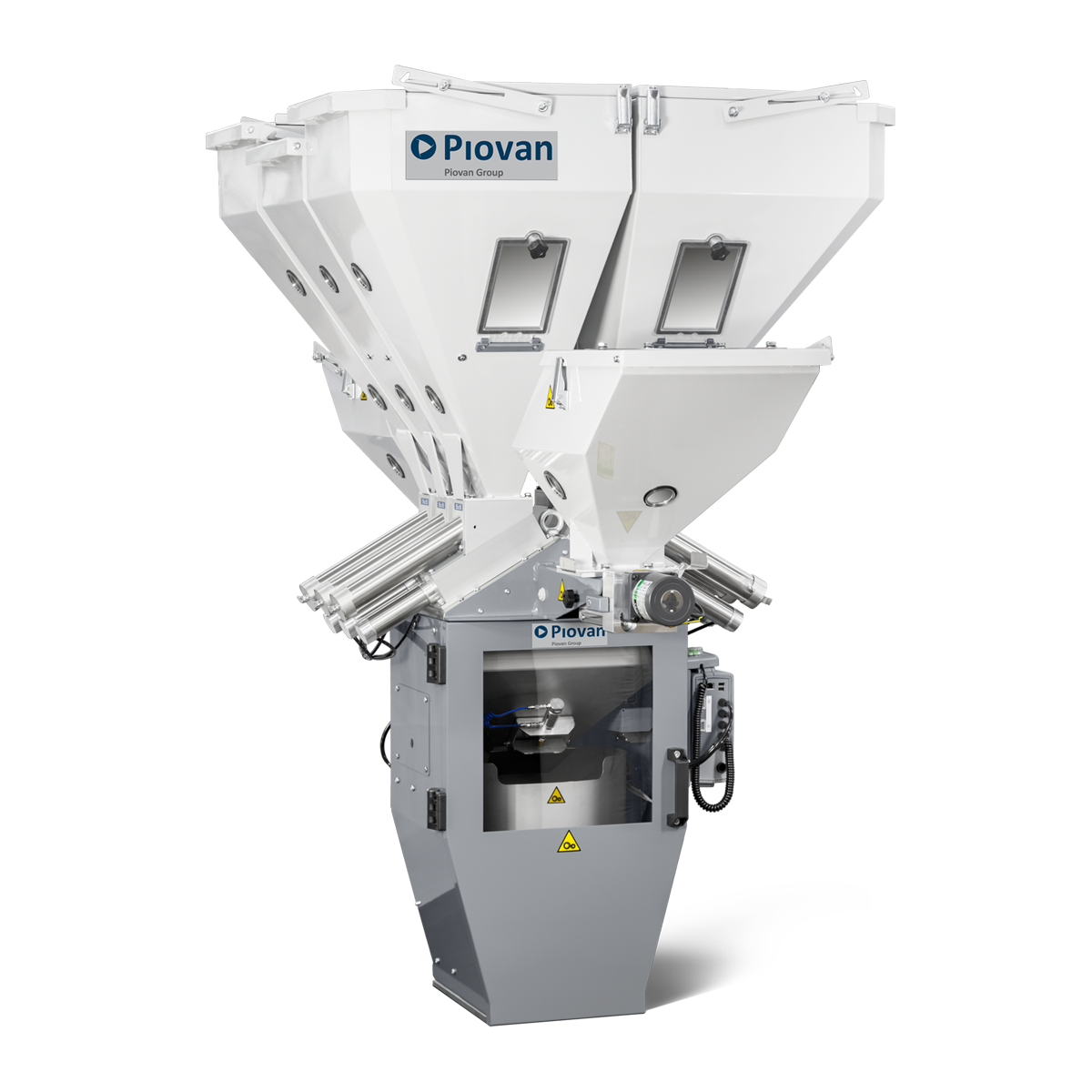
Available for flakes and high temperatures, the MDW gravimetric batch blenders can dose and weigh up to 8 materials. The microprocessor control assures high execution speed, precision and simple setting of the unit. The MDW blenders guarantee quick material change and simplified cleaning operations.
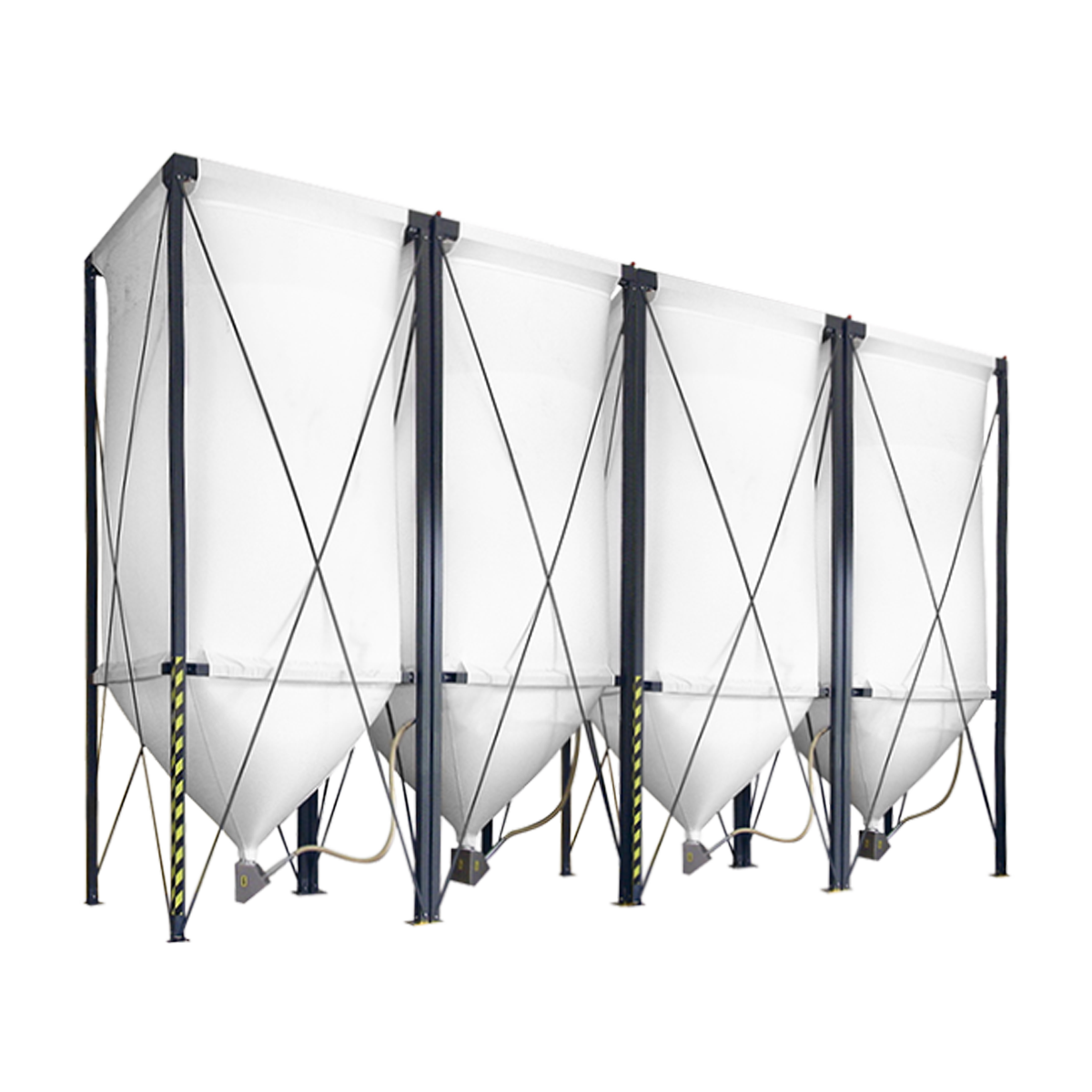
Reinforced high resistant textile silos are suitable with materials with PSA up to 0.6 kg/dm3 as standard. The solution is characterised by antistatic, anti condensation and anti dust behaviours. The silo roof section is made by a filtering textile for a practical and safe evacuation of air during the pressure loading.
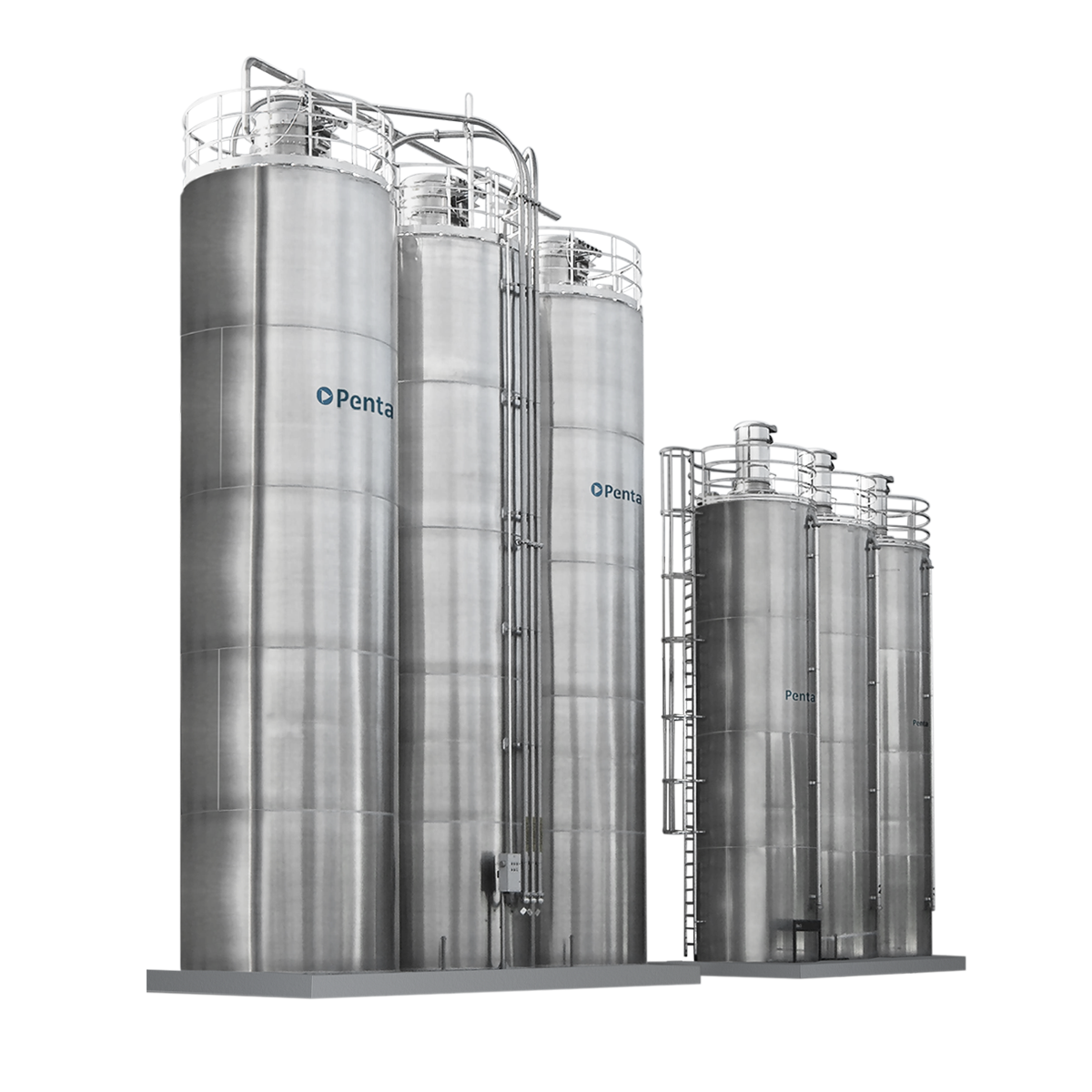
Large diameter silos offer with great attention to functional and aesthetics for outdoor installation. Suitable for granules, flakes or powders, the Piovan silos have specific geometries and devices according to the materials to store, such as outlet air filters, extraction systems for high friction polymers, measurement solutions like load cells and protection systems for potentially explosive atmospheres. These silos are compatible with a wide range of loading methods like truck pumps, sea containers with bags, high pressure blowers for dense or semidense phase conveying systems.
The range of Piovan solutions spans from stand-alone single material loaders to central multiple material systems.
Broad selection of technologies to perform the drying process in the best condition possible for the raw material.
Volumetric, gravimetric, loss-in-weight, continuous or batch, are the technologies implemented in the series of blenders and dosing units of Piovan.
Efficiency of heat exchange and reliability of operation characterise our range of temperature control units.
Wide range of solutions that includes from the small movable storage silos on wheels, up to the external silos to stock tonnes of material. The solutions can be totally tailor made on customer request.
Integration of processes is key to utmost efficiency of operation and highest production output.
The simplest way of measuring AA levels in PET preforms. The Piovan Lab-Tech range allows utmost production monitoring, by providing real time analysis of acetaldehyde content in the PET preforms.
Small, medium and large capacities, with the latest design for size reduction, granulation, recycling devices and accessories, represent the range of equipment of Piovan.
Flexcool solution can use ambient temperature to cool the processing equipment. Such a peculiar strategic feature makes Flexcool ideally suitable to serve sets of injection moulding machines having diverse characteristic, that is, in those working situations where different machines are required to operate at varying processing conditions of temperature, flow, pressure. Flexcool ensures the highest level of control, flexibility and energy efficiency.
With specific skills and deep knowledge of the PET preform production process, we provide customised solutions able to satisfy the specific cooling needs of the PET preform sector.
Our air-cooled chillers provide the ideal cooling solution for a wide range of industrial applications related to the plastics processing and to the food industry.
Our water-cooled chillers provide high quality, operation efficiency, and energy savings for a wide range of industrial applications related to the plastics processing and to the food industry.
Our product range includes a line of thermochillers which have the function to heat and cool the process circuit of injection and blow moulding machines utilized in the plastics processing. Available in the single or dual circuit versions, these machines provide maximum cooling yield with minimum energy consumption.
Efficiency of heat exchange and reliability of operation characterise our range of temperature control units.
Our dry coolers are the best answer to the needs of various industrial processes and applications where it is essential to constantly cool the fluid used for the heat exchange at a temperature greater than or equal to that of the external environment. Representing an effective alternative to cooling towers with low costs and low energy consumption.
A very high attention and considerable importance is given to pumps, the devices that allow cooling and chilled water circulate throughout the circuit.
Piovan develops all software for the entire line of industrial cooling solutions.